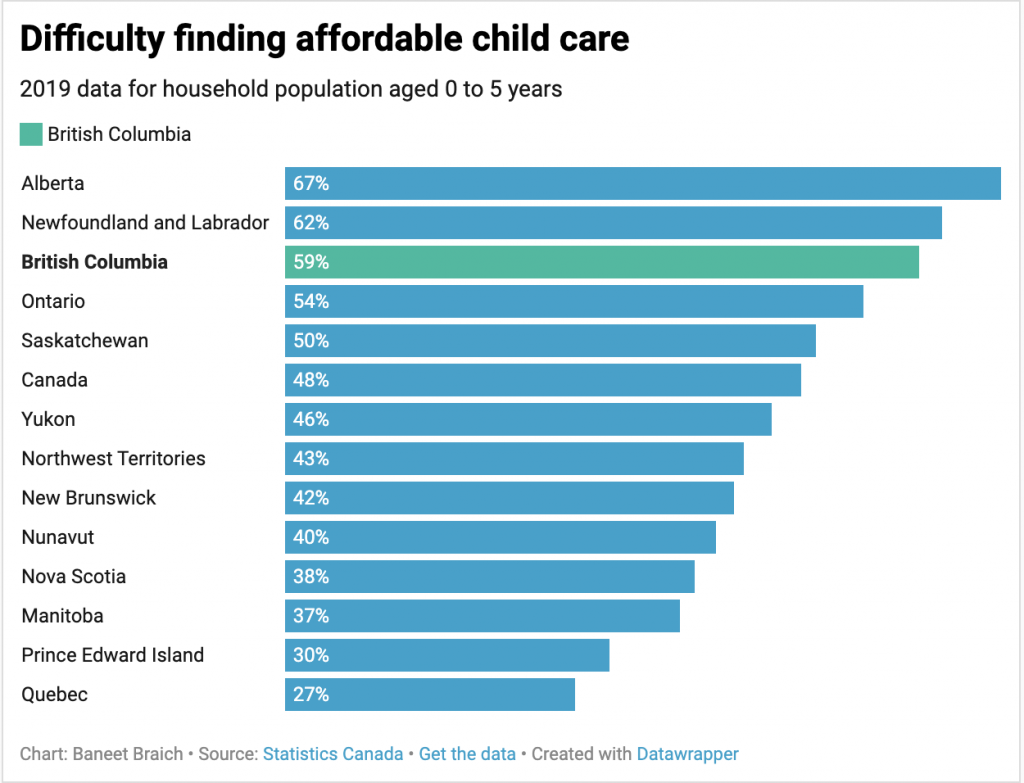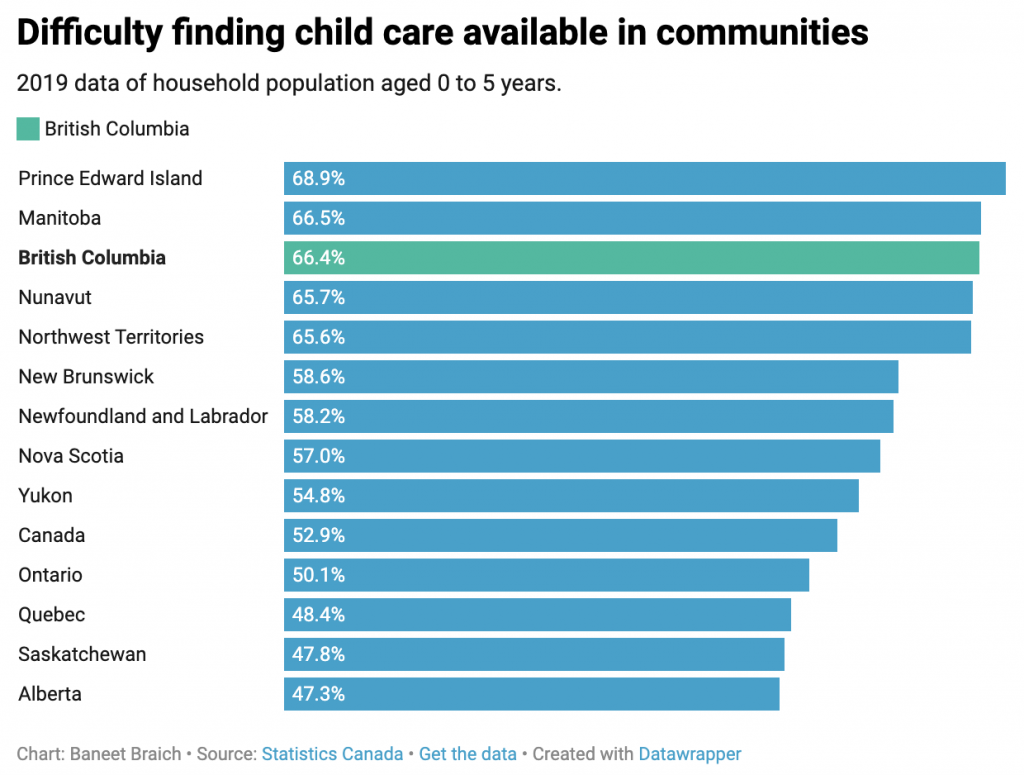Thea Lopez immigrated to Surrey, B.C. in 2017 with her husband, one-year-old daughter, and one child on the way. Starting their new careers in Canada as nurses, child care was a top priority. In 2017, Lopez’s children were number 360 plus on the child care waitlist. Three years later her son is still number 27 and her daughter- who is now in kindergarten- is number 26.
“I called more than 30 facilities in 2017 and there were no spaces, even if I have the resources to put my kids in, there is no space,” she says. “As much as I want to work and be part of the system, I cannot.”
Lopez’s struggles led her to advocate for the $10aDay Child Care initiative in B.C. which pushes for families to pay $200 a month for child care with participating daycares.
Since November 2018, the B.C. government approved over 50 prototype sites where families pay $200 a month for child care. A recent Early Learning and Child Care agreement with the federal government has extended the prototype sites into 2021. These sites are testing funding and operations towards a universal child care system, according to the government of B.C. website.
Sharon Gregson, spokesperson $10aDay Child Care, says she is hopeful that COVID-19 will instill urgency and result in long-term changes to child care.“Covid-19 has highlighted both provincially and federally how crucial child care is for women’s participation in the workforce,” says Gregson. When more parents can access affordable child care, it has an impact on labour force participation, she added.
The median cost of full-time, full-day child care in Vancouver in 2018 was nearly $1,400 a month for infants, $1,407 for toddlers, and $1,000 for a preschoolers, according to a report by Canadian Centre for Policy Alternatives. For Lopez, the cheapest daycare she found was $900 a month but with an extensive waiting list.
Alison Merton, director of the Early Years Program at Collingwood Neighbourhood House says that despite a 25 per cent increase in requests at her day care this year, she recognizes that accessibility and affordability remain a concern for families.

“Accessibility is huge,” she says. “Having those spaces available for families, we just don’t have enough especially for infants and toddlers. We just don’t.”
Merton says that part of the issue is recruitment and retention in the field. “We just don’t have the staff coming into the field. It’s just very hard to piece together, she says.
Although the government added $2 an hour to early childhood educator (ECE) wages in April 2020, Merton says, “We need to do better.” Many ECE staff leave to work in education for higher pay and better benefits, she says.
Merton says the child care system can be improved by having funding allocated to child care programs instead of the subsidy for families. “If you are funding the programs you have a certain amount of control of quality being delivered to the program,” she says.

While municipalities have different needs to best foster child care demands, Gregson says she remains absolutely hopeful with B.C.’s child care future.
“B.C. is one of the few provinces that has a provincial plan ready to be implemented,” says Gregson. B.C.’s cities are in a much better position now to know where they need childcare, how much, and their issues with recruitment and childcare educators, she adds.
British Columbia’s investment into childcare continues in 2020 with $1.4 billion for Childcare BC. This brings the total investment in child care programs to $2 billion over three years, according to the government of B.C. website.

